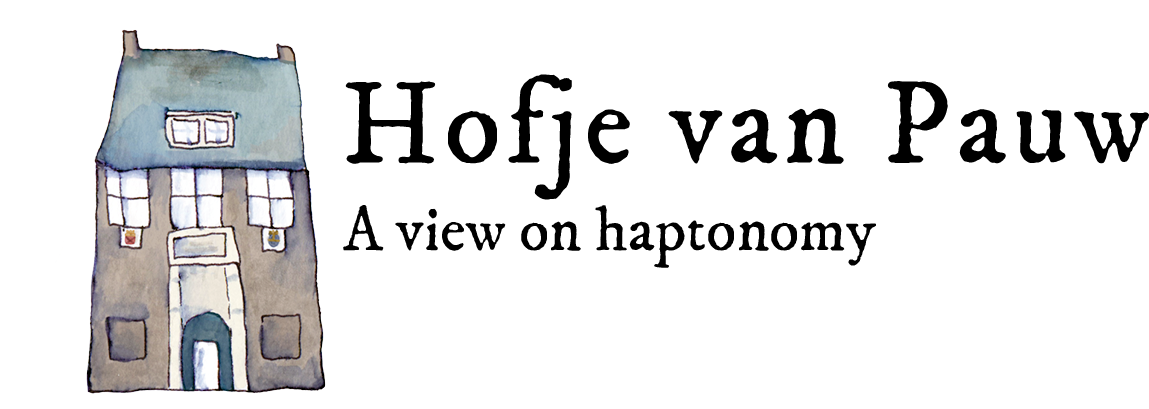FAQ
A: Both Ineke Dicker and Harm Muntinga are qualified physiotherapists. In addition they are also qualified Haptonomists and Haptotherapists, having completed courses at both the Academy Haptonomy and Kinesionomie in Doorn and Synergos in Amersfoort. Ineke a trained supervisor having qualified at the PAO and is a LVSC-approved supervisor. In addition she has also followed the LVSC training to become an “Accredited Coach”. Harm completed on year of practical Pesso: body psychotherapy training at the Rino in Amsterdam. He is also a qualified coach, having followed the professional coach training at Pro Education in Amsterdam. He is registered with the NOBCO. We are a members of the following organisations: the Dutch Association of Psychologists, Therapists and Psychosocial Counsellor’s (NVPA) , the Association of Haptotherapists (VVH), the Association for Haptonomic Pregnancy Counselling (VHZB), the National Association for Supervision and Coaching (LVSC) and the Dutch Association of Professional Coaches (NOBCO). We are registered with the RBCZ (the umbrella organization for graduated therapists in the alternative health sector).
A: Since 1994 when we started Hofje van Pauw as a practise for Haptotherapy
A: No, in order to avoid risks, we always start with an intake interview in which we verify whether haptotherapy is a suitable form of therapy for the client who is looking for help. During the intake interview, we look at the origin of the complaint and how the client deals with it. We also examine your life history and your current personal situation. The intake is followed by three treatments. After these three sessions we will evaluate your experience and determine whether further treatment is required and how that should be structured. If we decide against further treatment we can (if required) refer you to other professionals with whom we collaborate.
A: After the first four meetings we will have a better indication of the extent and duration of the treatment.
A: Yes, we believe it is important to consult with other professionals when appropriate and after obtaining your permission.
A: After the first four sessions, we can examine whether or not the Haptotherapy is suitable for you, or whether the failure of the treatment lies with the interaction with the therapist. We will find a suitable solution for you.
A: When the therapist stops practising, the files will be transferred to his successor or in the event that there is no successor, the therapist remains responsible for the files. The situation is more problematic when the therapist himself is no longer able to manage his records e.g. because he or she dies or becomes incapicitated. To avoid in such situations the therapist should make timely arrangements for the handling of his files. This duty stems from the legal obligation to save records for (15 years). The clients need to be informed about the arrangement the therapist has made for dealing with his files in such an eventuality.
- Developmental Issues: by way of example, when you are functioning in an environment in which you are not comfortable- you feel discomfort or ill at ease- dissatisfaction with your current situation and do not know how to deal with your feelings or desires.
- Difficulty in recognising and expressing your feelings.
- Difficulty in setting your boundaries.
- Suffering from a low self-esteem or feelings of inferiority.
- Problems with intimacy and attachment.
- Problems in relation to others (personal or work-related).
- Problems related to the transition from one phase to the next in life: from childhood to adolescence, from adolescence to adulthood, adulthood to middle age, or middle -to old age.
- Problems with acceptance of, or recovering from, loss, trauma, illness or disability.
- Feelings of being over-burdened or worn out.
- Feeling of being stressed, overworked or a loss of confidence in your own performance as a result of pain, long-term physical or mental overload or burnout.
- Physical symptoms with a possible psychosomatic cause.
- Wanting to achieve more, but doing very little.
